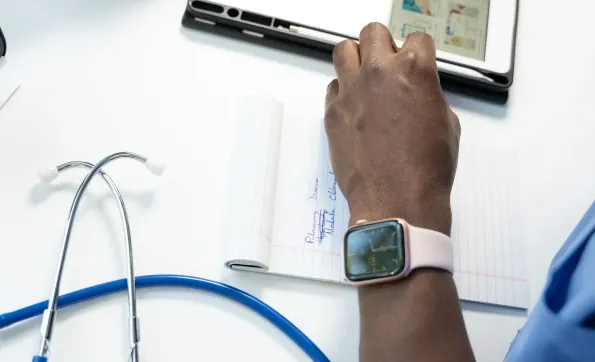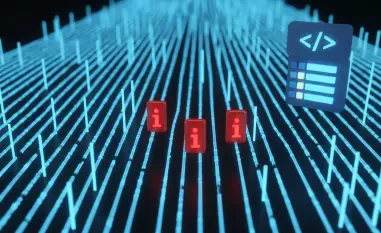The recent ransomware attack targeting the prominent medical device manufacturer Artivion, known for its expertise in heart surgery products, has brought to the forefront the significant cybersecurity vulnerabilities within the healthcare sector. This alarming incident, which took place on November 21, 2024, underscores the critical necessity for robust cybersecurity measures to safeguard sensitive data and ensure the uninterrupted delivery of essential medical services critical to patient care.
Artivion Cyberattack Details
Incident Overview
On November 21, 2024, Artivion experienced a disruptive ransomware attack that significantly compromised its internal systems. The attackers managed to encrypt vital files and exfiltrate data, hallmarks characteristic of ransomware incidents. In response, Artivion quickly took multiple systems offline to contain the pervasive breach. Initiating a comprehensive investigation, they engaged external experts specializing in legal, cybersecurity, and forensic analysis. The goal was to discern the scope and impact of this breach and to navigate the complexities of legal and technical recovery.
The ability of Artivion to promptly identify system vulnerabilities and involve third-party experts exemplifies the importance of a solid incident response plan. Despite the disruption, Artivion relentlessly worked to ensure the continuity of their products and services to customers. This is a testament to the necessity for healthcare organizations to have contingency plans and immediately actionable protocols. Although the company faced some temporary interruptions, their effort to maintain operational capability during an ongoing cyber threat was crucial to minimizing broader impact.
Response and Containment
Artivion’s swift engagement of specialized external experts demonstrates the critical importance of a well-prepared incident response plan when facing cybersecurity threats. The outside specialists assisted with understanding the breach’s full impact, implementing essential containment measures, and overcoming the incident’s complexities. This response included taking necessary systems offline, performing thorough investigations, and fortifying defenses to prevent further damage.
In light of these disruptions, Artivion managed to continue providing their essential products and services to customers, despite facing temporary operational interruptions. This scenario shows the pivotal role a strategic reaction plan plays in mitigating breach impacts. Going above and beyond the immediate challenge, the ability of Artivion to adapt to its compromised situation and continue its services underscores the resilience needed in the healthcare sector. It attests to the importance of having robust cybersecurity protocols that allow quick containment and recovery from such unexpected cyber events.
Operational and Financial Impact
Disruptions and Mitigation
The ransomware attack caused noticeable operational disruptions for Artivion, affecting critical aspects such as order and shipping processes. Despite these challenges, the company managed to successfully mitigate the issues and is now focused on securely restoring its systems. Artivion, which operates from multiple facilities across Atlanta, Georgia; Austin, Texas; and Hechingen, Germany, employs over 1,250 individuals. The attack did not have a material impact on the company’s overall financial condition or operational results, reflecting their commitment and preparedness.
Despite the breaches, Artivion’s efforts to stabilize operations and uphold service continuity showcased their ability to handle crises. Their approach emphasized resilience, with efforts swiftly put in place to address the vulnerabilities exposed by the attack. Although the initial disruptions presented significant challenges to routine operations, the recovery steps ensured pivotal services and product delivery continued, albeit with some temporary modifications in procedures. Such actions highlight the necessity for healthcare providers to have thorough risk management strategies in place, ready for rapid deployment under duress.
Financial Implications
While Artivion has reported that there was no immediate significant financial impact from the cyberattack, the company acknowledges the potential for future costs associated with managing such incidents. These could extend beyond standard operational impacts, including potential legal and regulatory obligations, and reputational damage control. Not all of these expenses may be fully covered by insurance, underscoring the inherent financial risks linked to cybersecurity breaches. The company anticipates incurring additional costs related to the event, some of which may not be covered by insurance.
The situation underscores the critical need for proactive investment in cybersecurity measures to prevent such incidents. The financial lingerings post-attack, despite having comprehensive insurance, reflect unprecedented vulnerabilities requiring forward-looking investments in security infrastructure. Proactive measures and continuous cybersecurity stance improvements are vital in protecting against similar future threats. The broader healthcare sector must thereby prioritize meticulous financial planning to cushion against unforeseen cyber-related disruptions, maintaining financial stability even under the threat of repeated attacks.
Ransomware Threats in the Healthcare Sector
Recent Incidents
The Artivion incident is not isolated but part of a concerning trend of ransomware attacks increasingly targeting the U.S. healthcare sector. For instance, in October 2024, Boston Children’s Health Physicians (BCHP) faced a similar data breach attributed to the BianLian ransomware group. This breach compromised sensitive information of employees, patients, and guarantors, exemplifying the healthcare sector’s pronounced vulnerability to cyber threats. These incidents underscore the urgent need for a stepped-up cybersecurity posture across healthcare providers.
Incidents like those affecting BCHP reveal how extensively critical data can be targeted and exploited in the healthcare sector. The susceptibility of sensitive medical and personal information, often through third-party IT vendors, magnifies the risks posed by ransomware attacks. Such breaches disrupt health services and expose personal data to extortionate purposes or dark web markets. These serve as warning signals for the healthcare sector, accentuating the necessity for robust cybersecurity defenses to safeguard integral operations and prevent potential crises ensuing data exfiltration.
Sector Vulnerabilities
The persistent risks faced by healthcare providers are increasingly apparent, especially as they often rely heavily on third-party IT vendors. Such dependencies introduce vulnerabilities, as unauthorized entities can leverage sensitive personal and medical data for extortion or trade it on the dark web. The consequences extend beyond financial strain, causing substantial operational challenges like system downtimes, delays in crucial services, and potential harm to patients awaiting medical interventions.
System downtime caused by these breaches can lead to delays in critical services necessary for patient care. The healthcare sector’s attack vulnerability includes both patient data and operational infrastructures. These dual-targeted assaults necessitate multi-faceted defense approaches to protect against the extensive impacts on health services. Healthcare organizations must therefore continually assess and update their cybersecurity frameworks, ensuring patient care remains unhampered by such digital threats. These measures are vital in mitigating both immediate repercussions and long-term security upgrades required to handle evolving threats.
Broader Implications for Healthcare Cybersecurity
Importance of Medical Device Manufacturers
The Artivion cyberattack emphasizes the growing threat landscape that healthcare organizations and their supply chains face. Medical device manufacturers, playing critical roles in patient care, underline the severe potential repercussions of any operational interference. Cyberattacks often compromise sensitive personal and medical data, resulting in significant operational challenges that ripple across the healthcare spectrum. The sensitivity of stolen data, which can be utilized for malicious purposes, further magnifies the need for enhanced security measures.
Any disruption in the operations of medical device manufacturers could lead to delays or stoppages in crucial patient care services, highlighting their strategic importance within the healthcare ecosystem. These manufacturers are essential to maintaining seamless healthcare delivery, and an attack on them has multifaceted implications far-reaching into direct patient care contexts. Effective protection against cyber threats mandates stringent security protocols, continuous monitoring, and rapid response capacities to swiftly tackle and neutralize potential threats before they escalate.
Necessity of Robust Cybersecurity Measures
Artivion’s response to the cyberattack, involving the engagement of external cybersecurity expertise and implementing containment measures, foregrounds the necessity of having a solid incident response plan. The financial burden of such incidents is evident, despite the presence of cyber insurance coverage, as some incurred costs may remain uncovered. These insights reveal the critical importance of having comprehensive, proactive cybersecurity investment and preparedness measures. The evolving nature of cyber threats requires such anticipatory stances to mitigate and preempt security breaches effectively.
Preparedness in cybersecurity is an ongoing process involving constant vigilance, updating security frameworks, rigorous training of personnel, and deploying advanced technological solutions. Financial resilience in the face of cybersecurity incidents also mandates systemic changes that address potential uncovered costs. These steps fortify the organization against the kinetic evolution of cyber threats. Organizations must thus adopt forward-thinking strategies ensuring cybersecurity isn’t reactive but rather anticipatory, continuously ahead of potential avenues exploited by malicious entities.
Industry Response and Next Steps
Regular Risk Assessments
The healthcare industry must emphasize heightened cybersecurity, ensuring comprehensive protection for both organizations and their partners. Conducting regular, detailed risk assessments encompassing IT infrastructures and supply chains is indispensable in identifying and mitigating vulnerabilities proactively. Regular monitoring and updating of cybersecurity measures align with evolving threats, significantly bolstering defensive postures. Such proactive identification of vulnerabilities is crucial to preempt and minimize potential breaches and cyberattacks.
Risk assessments must be complemented by continuous evaluations and updates in security policies to address newly identified vulnerabilities. Involving all stakeholders, from internal teams to third-party vendors, reinforces a coordinated defense strategy. This thorough audit approach substantiates a resilient framework capable of withstanding repeated cyber threats. By pinpointing weaknesses early, healthcare organizations can instill robust defense mechanisms to repel cyber intrusions effectively, ensuring consistent and secure operations.
Employee Training and Incident Response Planning
Training employees to recognize phishing attempts and other common vectors used by ransomware operators is essential for reinforcing cybersecurity within an organization. Employees act as the first line of defense, and their vigilance can prevent many attacks from succeeding. Additionally, developing and rehearsing comprehensive incident response protocols is critical for minimizing downtime and financial losses in the event of a breach. These protocols ensure that every team member knows their role and actions during a cyber incident, improving the organization’s overall readiness and reaction efficiency.
Regular training programs enhance awareness and competence among staff, reducing susceptibility to common cyber threats. Through simulated attack exercises and thorough rehearsal of incident response procedures, organizations can build a resilient culture of preparedness. Comprehensive incident response protocols that are rigorously practiced can mitigate the impacts of cyberattacks and enhance recovery times. The commitment to continual learning and practical preparedness solidifies an organization’s defense mechanism against evolving and sophisticated cyber threats.
Collaboration with Authorities
Collaborating with authorities and sharing threat intelligence with law enforcement and cybersecurity agencies can significantly aid in tracking and disrupting ransomware groups. Engaging in such collaborative efforts ensures that healthcare providers can benefit from broader intelligence and support networks, enhancing their own cybersecurity measures. These alliances can fortify defenses, benefiting from collective vigilance, and proactive threat disruption capacities. Advanced measures and coordinated defenses are pivotal in the healthcare sector’s effort to combat pervasive cyber threats.
Ongoing cooperation with cybersecurity agencies ensures that threat trends and emerging risks are rapidly communicated across all fronts, keeping organizations informed and prepared. Collaborations also facilitate quicker, more effective responses to incidents, pooling expertise and resources for optimal resolutions. The concerted effort from collaboration underscores the united front necessary to mitigate digital threats and protect critical healthcare infrastructures. Persistent effort towards strong alliances and collaborative information-sharing fundamentally strengthens the defense mechanism required to counteract increasingly sophisticated cyber threats tailored to exploit healthcare vulnerabilities.
Conclusion
The recent ransomware attack on Artivion, a leading medical device manufacturer known for its heart surgery products, has highlighted the pressing cybersecurity vulnerabilities in the healthcare industry. This incident, which occurred on November 21, 2024, brings to light the urgent need for stringent cybersecurity measures to protect sensitive data. Artivion’s expertise in producing essential medical devices means any disruption can have serious implications for patient care. The attack serves as a critical reminder that ensuring the security of medical data is not just a technical issue but is crucial for the uninterrupted delivery of medical services that patients rely on. Cybersecurity in healthcare is paramount because breaches can compromise patient information, disrupt critical services, and erode trust in medical institutions. This situation underscores the imperative for healthcare organizations to invest in robust cybersecurity infrastructure, to prevent future breaches and safeguard both patient safety and data integrity. This attack on Artivion should prompt immediate action across the healthcare sector to bolster its cyber defenses and protect its vital systems.













